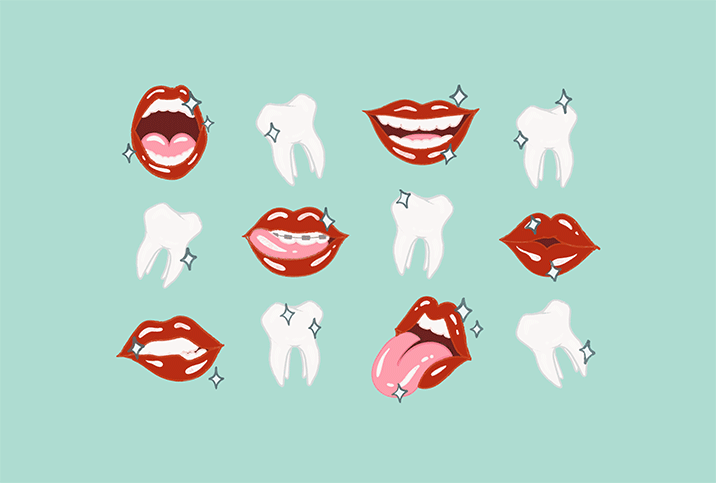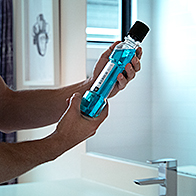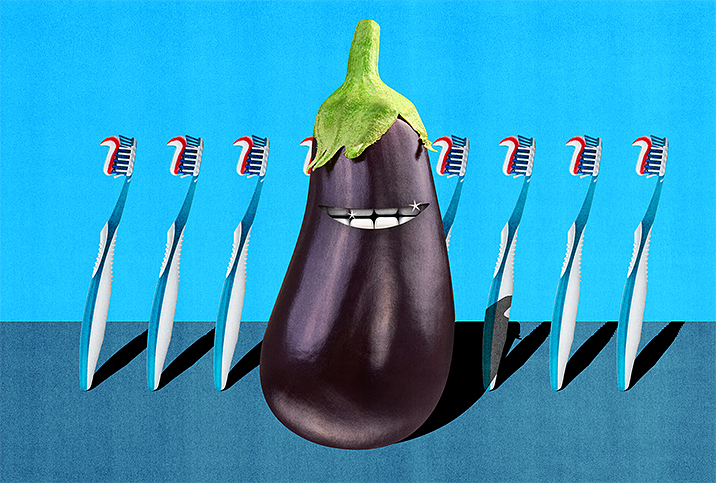What Your Smile Says About You

Consistently practicing good dental hygiene is an important way to protect your oral health and overall well-being. Since your smile is often one of the first things others notice about you, it makes sense to want the best one possible.
The American Dental Association recommends individuals go to the dentist for a checkup and teeth cleaning twice per year, and for people with a higher risk of oral health problems to go three to four times or more per to ensure any issues—such as gum disease—are discovered and addressed early.
Sounds easy enough, right? Well…maybe not.
Facing your fears
Recent surveys have found that more than 75 percent of U.S. adults have some fear when it comes to visiting the dentist, with 5 percent to 10 percent of those adults reporting that their fear is so strong that it results in them avoiding the dentist altogether.
William Wyatt, D.D.S., owner of Flower Mound Dental in Flower Mound, Texas, said if you're afraid of the dentist, it could be helpful to shift your perspective.
"The longer you wait, the greater the chances are that you're going to have needs that will be harder to deal with," Wyatt said. "I tell everybody when I'm starting to work on them that I'll make them as comfortable as I can, but that, hey, I know this is not the same as getting a haircut. But the longer they go to avoid coming in, the higher the chance that it's going to be a difficult time when they finally end up needing to get some treatment done."
While getting cleanings, fillings and crowns may not be the most pleasant way to spend an afternoon, these are ultimately brief experiences that will have positive effects on your oral health for years to come.
"I tell folks that if they get the dentistry they need done, if they'll do what I tell them to, and I see them often, I can almost guarantee that I can make their teeth last longer than they would otherwise—which is our goal," Wyatt said.
Tips for good oral hygiene
One of the top mistakes people make when it comes to keeping their mouths healthy is not sticking to a routine. Wyatt said consistency is key to maintaining good oral health.
"Almost no one flosses as much as they should," Wyatt said. "Plaque builds up in between your teeth in places a toothbrush can't reach. You can't use just a toothbrush because you're really only getting about three-fourths of the surface area of your teeth with the bristle. It's just a simple matter of physics and engineering."
Ideally, you should floss at least once a day, but even a few times a week would be much better for your dental health than not flossing at all, Wyatt said, adding you shouldn't give up on flossing just because you notice your gums bleed a little. In fact, a little bleeding is likely a sign you haven't been flossing enough and will happen less and less as you begin flossing more consistently.
'Ideally, you should floss at least once a day, but even a few times a week would be much better for your dental health than not flossing at all.'
"If you stop flossing because the first time you did it you bled a little, that's like working out one time and saying you're never going to do it again because it made you sweat," Wyatt said. "You keep at it and make sure you're doing it in a safe way, and eventually you won't have that problem."
When it comes to choosing your dental products, be sure to look at what the experts say before implementing them into your routine. Wyatt said if you're looking to get whiter teeth, you could either have them whitened professionally or use reputable products, like at-home whitening strips (Wyatt likes Crest), but you should definitely skip some of the newer fads, like charcoal toothpaste, which usually promise quick and dramatic results.
"The only issue with the charcoal is that it's really abrasive," Wyatt said. "If someone gets really carried away and uses it vigorously for months or years, they're gonna cause a lot more damage to their enamel than they would have otherwise. And the charcoal itself doesn't do a thing. It turns your teeth temporarily black, but it does not actually whiten them at all."
Watching for signs of gum disease
Gum disease, known as periodontitis, occurs when bacteria infect the gums, damaging the soft tissue and causing bad breath. When left untreated, gum disease can lead to tooth loss, heart problems and other health complications. Pointing out when someone has bad breath is never fun, but if you or your partner have chronic bad breath, it's worth having a conversation about because it could be a sign of an underlying health problem.
According to the Mayo Clinic, gum disease is typically the result of poor oral hygiene. However, a family history of gum disease can also put you at greater risk, as can health conditions such as obesity, malnutrition, hormonal changes, a weak immune system, diabetes, rheumatoid arthritis and Crohn's disease.
"Gum disease is a lot like diabetes in that you can't cure it—all you can do is control it," Wyatt said. "And it has a hereditary component so if your parents had gum disease, then you're going to be more susceptible to it no matter what. So if you know that, you can come in for checkups more often to make sure your gums stay healthy and any issues are controlled from early on."
Healthy gums, Wyatt said, typically look like tight pink leather. If you notice your gums are bright red and puffy or feel sore and bleed often, you should go see your dentist to get checked for gum disease.
Another telltale sign of gum disease is persistent bad breath that doesn't go away after brushing your teeth, as the smell is the result of the infection beneath the gums.
Confidence in your smile
Taking care of your smile not only helps keep you healthy, but also signals to the outside world you have good hygiene and gives you the confidence you need to put your best face forward.
Changhoon Lee, a certified lab technician and owner of Prestige Line Dental Studio, also in Flower Mound, Texas, said he has seen firsthand how a person's entire demeanor changes when they feel good about their smile. Lee's day-to-day work involves crafting dental implants for medical and aesthetic mouth restoration.
"The patients, before they come, you can see that they won't let themselves smile big because they want to hide their smile, whether it's because of broken teeth or because some of their teeth are a darker shade because of stains," Lee said. "But you can see, immediately after their restoration procedure is done, they can't stop smiling. They feel so much better about it."
Lee said he enjoys his job because patients are able to see they can have the smile they want even if they start out with some damage or staining.
Whether you're working to maintain the smile you were born with or are looking to get an upgrade, one thing is clear—oral health goes far beyond your mouth, and maintaining it can help you feel more confident and stay healthy longer.




















